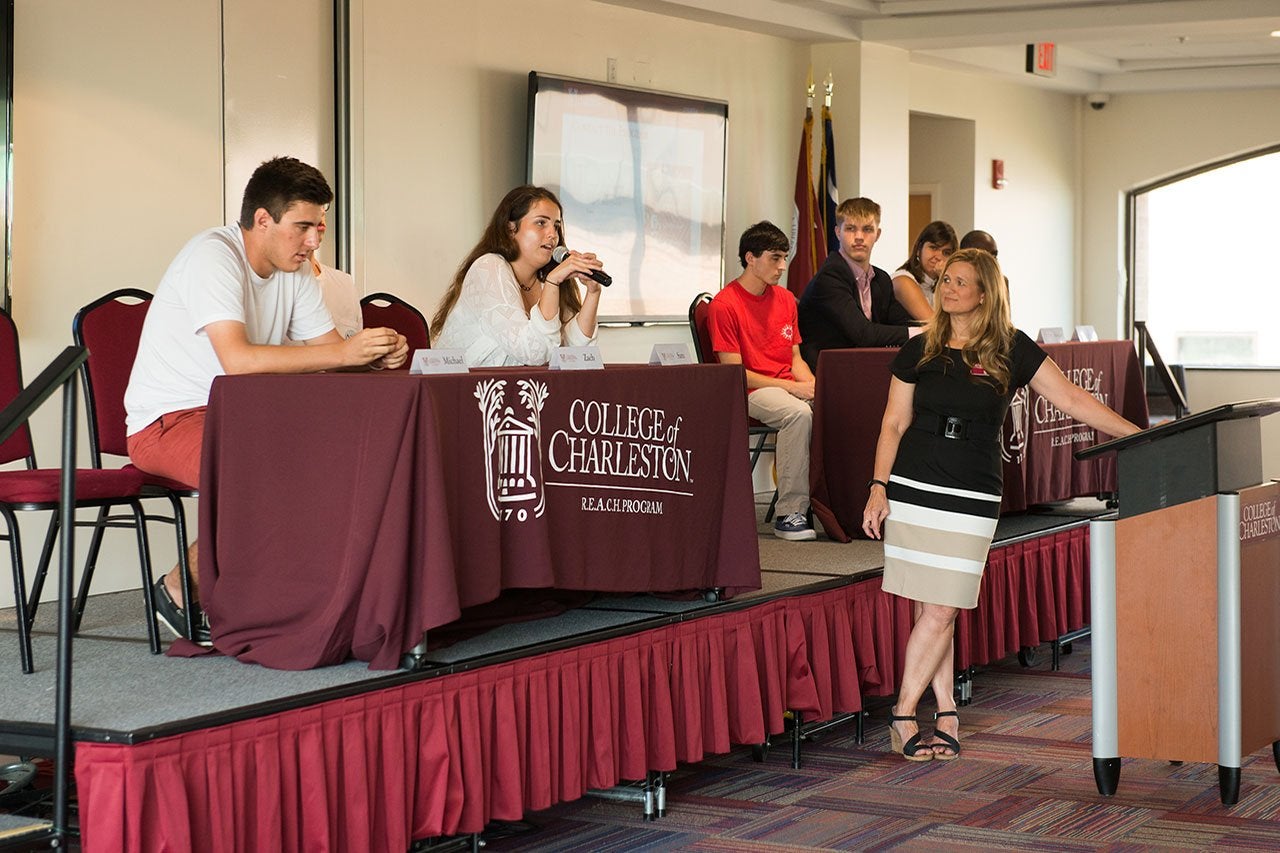Fourteen years ago, Edie Vardsveen Cusack ’90, executive director of the REACH Program, came to the College of Charleston on a mission. When the College received a grant to start a post-secondary program for students with intellectual or cognitive disabilities, Cusack, who taught special education in middle and high school for 20 years, jumped at the opportunity.
“A former student reminded me that I said that if I could make it possible for my students to go to college, I would,” says Cusack. “Here was my opportunity.”
Determined to ensure her REACH students received the traditional College of Charleston experience, Cusack systematically met with all of the departments to build relationships when she first arrived on campus in 2009.
“I went to each office and said that we have a new program and asked how we would work together,” says Cusack. “I didn’t give the option to say no.”
Cusack says the program gained traction thanks to some brave parents who trusted her. The first year, they accepted eight students, six of whom started and came to orientation. Of that six, five started classes and two graduated.
RELATED: REACH Graduate is Delivering the Goods
“At the time, I was literally developing the program semester by semester,” says Cusack. Her approach worked and the next year, 10 students came to campus — the maximum for each incoming class.
Cusack, who notes that providing REACH students with support so they can be independent, self-reliant individuals is a massive undertaking, slowly expanded her staff to the eight-strong team she has today. The team’s work is bolstered by graduate and undergraduate students who provide mentorship and hands-on training.
Today, the College of Charleston has one of the most inclusive programs of its kind in the world. The program provides a quality education that prepares students for a life after college.
Pleased with all that she and her team has accomplished and confident in the future of the program, Cusack is ready to pass the baton.
“I am leaving the REACH program with qualified, credentialed staff who know what they are doing,” says Cusack. “More than that, they are all motivated by the impact they are making on our students’ lives. They understand our mission and purpose and function as a multi-disciplinary, collaborative team.
“We have created a sustainable program that’s way bigger than me, one that enables people to have a life and opportunities,” she adds. “Our professors at the College appreciate REACH because it increases the diversity of their classes and a difference in perspective — having that support means a lot.”
As she prepares to expand her reach with plans to create similar opportunities for students in other schools, Cusack is grateful to have been at the forefront of the REACH Program.
“I am leaving the REACH Program in very capable hands; the program will be fine without me,” says Cusack. “It is one of my proudest accomplishments — creating a sustainable program that is changing the lives of students with intellectual disabilities by giving them the opportunity to experience college life through inclusive participation in academics, social-skill building, independent living activities and career development.”





